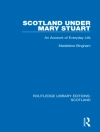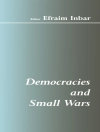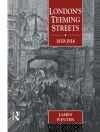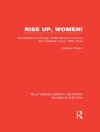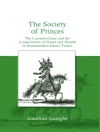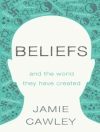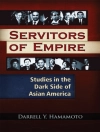Bringing together 25 case studies from archaeological projects worldwide, Engaging Archaeology candidly explores personal experiences, successes, challenges, and even frustrations from established and senior archaeologists who share invaluable practical advice for students and early-career professionals engaged in planning and carrying out their own archaeological research.
With engaging chapters, such as ‘How Not to Write a Ph D Thesis on Neolithic Italy’ and ‘Accidentally Digging Central America’s Earliest Village’, readers are transported to the desks, digs, and data-labs of the authors, learning the skills, tricks of the trade, and potential pit-falls of archaeological fieldwork and collections research. Case studies collectively span many regions, time periods, issues, methods, and materials. From the pre-Columbian Andes to Viking Age Iceland, North America to the Middle East, Medieval Ireland to remote north Australia, and Europe to Africa and India, Engaging Archaeology is packed with rich, first-hand source material.
Unique and thoughtful, Stephen W. Silliman’s guide is an essential course book for early-stage researchers, advanced undergraduates, and new graduate students, as well as those teaching and mentoring. It will also be insightful and enjoyable reading for veteran archaeologists.
Зміст
List of Figures ix
List of Tables xi
Notes on Contributors xiii
Acknowledgments xix
1 Engaging Archaeology: An Introduction and a Guide 1
Stephen W. Silliman
Part I Landscapes, Settlements, and Regions 13
2 Climbing Hillforts and Thinking about Warfare in the Pre?]Columbian Andes 15
Elizabeth Arkush
3 Losing Control in the American Southwest: Collaborative Archaeology in the Service of Descendant Communities 23
Matthew Liebmann
4 Getting It Wrong for All the Right Reasons: Developing an Approach to Systematic Settlement Survey for Viking Age Iceland 31
John M. Steinberg, Douglas J. Bolender, and Brian N. Damiata
5 Archaeological Projects in India: Decolonizing Archaeological Research, Assessing Success, and Valuing Failure 41
Uzma Z. Rizvi
6 Lifeways of the First Australians: Regional Archaeology in the Remote North of Australia 51
Jane Balme
7 The Kuril Biocomplexity Project: Anatomy of an Interdisciplinary Research Program in the North Pacific 61
Ben Fitzhugh
8 Listen for the Echo of Drums Across the Water: Rock Art Sites as Engaged Community Research in Ontario, Canada 71
John William Norder
9 The Heart of Lightness: Doing Archaeology in the Brazilian Central Amazon 79
Eduardo G. Neves
Part II Sites, Households, and Communities 87
10 Household Archaeology at the Community Scale? Refining Research Design in a Complex Polynesian Chiefdom 89
Jennifer G. Kahn
11 Research Spaces from Borderland Places – Late Woodland Archaeology in Southern Ontario 99
Neal Ferris
12 Ethnoarchaeology of Pottery in Tigray, Ethiopia: Engaging with Marginalized People 109
Diane Lyons
13 Integrating Paleoethnobotany in Investigations of Spanish Colonialism in the American Southwest 119
Heather B. Trigg
14 Framing Local History with Global Archaeological Lenses in Osun Grove, Nigeria 127
Akinwumi Ogundiran
15 Rooting in New England: Archaeologies of Colonialism, Community, and Collaboration 135
Stephen W. Silliman
16 Accidentally Digging Central America’s Earliest Village 143
Rosemary A. Joyce
17 Slouching Towards Theory: Implementing Bioarchaeological Research at Petra, Jordan 151
Megan A. Perry
18 In Archaeology, “You Get What You Get, ” and Most of the Time What You Get Is Unexpected: Investigating Paleoindians in Western North America 159
Ted Goebel
19 Archaeologies of a Medieval Irish Castle: Thinking about Trim 169
Tadhg O’Keeffe
Part III Materials, Collections, and Analyses 179
20 Dr. Stage?]Love, or: How I Learned to Stop Worrying and Love My Dissertation on Race, Pipes, and Classification in the Chesapeake 181
Anna S. Agbe?]Davies
21 Lessons Learned in Seriating Maya Pottery 189
Lisa J. Le Count
22 The Bones from the Other Tell: Zooarchaeology at Catalhoyuk West 199
David Orton
23 Disrupting Fixed Narratives: Researching Colonial Dress and Identity in Museum Collections 209
Diana Di Paolo Loren
24 Reverse Engineering in Prehistory: The Neolithic Bow of La Draga, Spain 219
Juan A. Barceló, Vera Moitinho de Almeida, Oriol López-Bultó, Antoni Palomo, and Xavier Terradas
25 Learning about Learning in Ice Age France through Stone Tools: An Intersectional Feminist Approach without Gender 227
Kathleen Sterling
26 How Not to Write a Ph D Thesis: Some Real?]Life Lessons from 1990s Michigan and Prehistoric Italy 235
John Robb
Index 245
Про автора
Stephen W. Silliman is Professor – and current Department Chair – in the Department of Anthropology at the University of Massachusetts Boston. He has conducted fieldwork in the Northeastern USA, the American West Coast, Bermuda, and Japan. His research interests focus on Native American history, colonialism and post-colonialism, identity, social and practice theories, collaborative research, and the politics of heritage.


